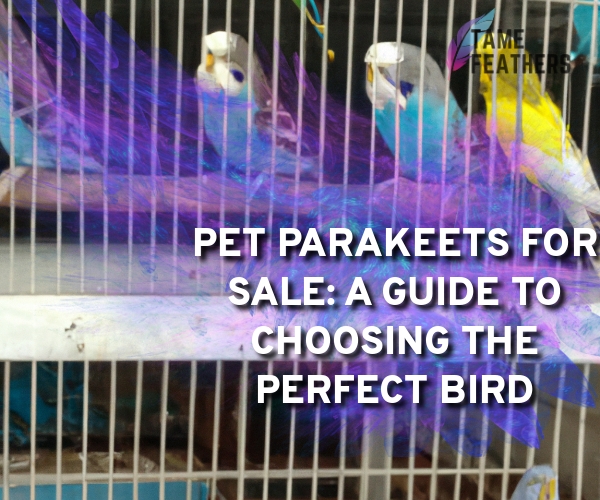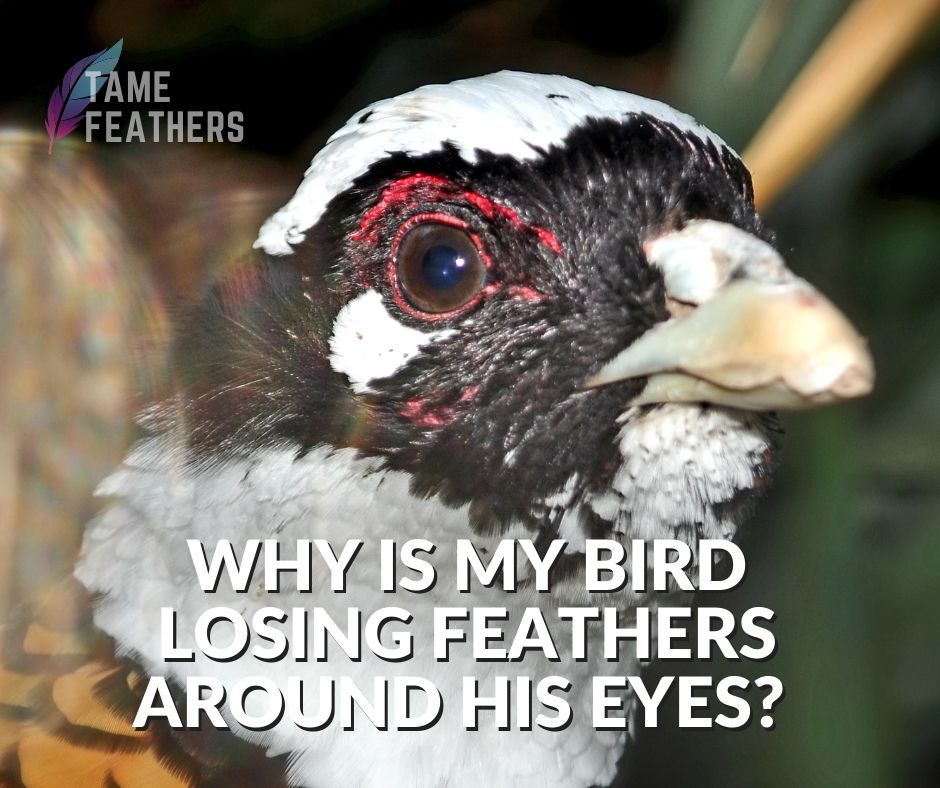Are you interested in bringing a parakeet home as a pet? Look nowhere else! You will find all the information you require in this guide to ensure that you select the ideal parakeet for your household. This article will cover all you need to know to start your relationship with your new bird partner off on the right foot, from locating reliable breeders to choosing the correct color and size bird. Let’s get started and learn all there is to know about purchasing pet parakeets!
Choose The Right Species
When looking into getting a pet parakeet, the first thing you should think about is which species would be most suitable for your living situation. Since parakeets are available in a wide variety of colors and sizes, it is essential to conduct adequate study prior to purchasing one.
In general, the majority of types of parakeets are sociable and clever birds that, with time, can develop a strong attachment to the people who keep them as pets. However, certain species are more active than others, and as a result, they require a bigger space within their enclosure or aviary.
Be sure to do some research on the various types of parakeets that are available before you make your choice. If you are aware of the distinctions that exist between these birds, you will be better equipped to make an educated decision regarding the species of parakeet that will best complement your personality and way of life.
Find A Reputable Breeder
Once you have selected a specific type of parakeet breed, the next step is to locate a reputable breeder in your area who is capable of producing birds that are both physically and mentally sound. If it is at all possible, ask people you know or people you are related to if they know of any reputable local breeders in your area. This will prevent you from having to go for a great distance in order to find the ideal bird.
When you go to the homes of potential breeders or stores where parakeets are sold locally or online, keep an eye out for signs that indicate the birds are living in substandard conditions. Some of these signs include overcrowded cages with too many birds in close proximity; insufficient food supplies; birds that appear sickly; droppings that are not cleaned up on a regular basis; etc. When contemplating the purchase of a parrot as a pet, all of these things should serve as warning signs.
Ask Lots Of Questions
Asking a lot of questions about an animal’s medical history and the care it requires before bringing it into your house as a new companion is something you should always do before making a purchase of any kind of animal. This is especially true for animals that are considered to be exotic pets.
This entails having a conversation with the seller or breeder themselves, as opposed to depending entirely on information obtained from websites or other sources, as these may not always be true depictions of what life may really be like after acquiring such an animal. When trying to assess whether something would satisfy both your requirements and theirs adequately over time, it may be really helpful to ask precise questions relating directly to each unique bird that is currently available.
Check For Signs Of Illness Or Injury
When you are looking at pet parrots for sale, you should make sure that each individual has been checked thoroughly by professionals before making any purchase decisions. Discerning eyes should take note of signs of illness such as ruffled feathers, sneezing, and watery eyes, as well as injuries incurred through rough handling during transportation, etc. If additional safety measures are taken now, before purchasing a home, it will pay off in spades further down the line.
Select The Right Cage
After determining the type or species is most suited, the next step is to decide the size and style of cage that will be required for the animal going forward into the future caregiving plans. Height (toys often require much higher heights than is normally assumed), adequate ventilation, sufficient floor space depending on expected activity levels, adequate height (toys often require much higher heights than is normally assumed), materials used inside cage such as perches made using natural wood as opposed to plastic equivalents, and various other considerations affecting overall comfort levels within confined spaces are all important factors to take into account.
Stock Up On Supplies
Before introducing your newly adopted feathery companion into your home, there are several things that are important that need to be procured beforehand. These things include, but are not limited to, the following: Millet sprays provide additional calcium and minerals, helping to fortify bones and muscles alike, while also providing tasty treats alongside fresh fruits and vegetables throughout the week, ensuring that dietary variety never lacks interest nor is lacking nutritionally….. seed mixes, cuttlebones, and mineral blocks all encourage preening behavior, among other things, while helping to maintain a balanced nutritional intake.
Enrichment Is Key To Happiness
FAQs About Parakeets
How much is a pet parakeet?
The cost of a pet parakeet can vary depending on the type and age of the bird, but generally they range from $20 to $50.
Is it better to have 2 parakeets or 1?
It is generally better to have two parakeets, as they are social birds and will be happier with a companion.
What is the lifespan of a pet parakeet?
The average lifespan of a pet parakeet is 10 to 15 years.
Which parakeets are friendliest?
The most friendly parakeets are usually the budgerigar (also known as a “budgie”) and the lovebird.
We Thought You Might Want To Know This About Parakeets… 😊
Are you thinking about getting a parakeet as a pet? There are a variety of options to choose from, including
baby parakeets for sale. Be sure to consider the best type of
food for parakeets and the sounds that parakeets make, such as
parakeets singing and
parakeets talking.
You can also find
pet parakeets for sale and learn about the
meaning of parakeet.





